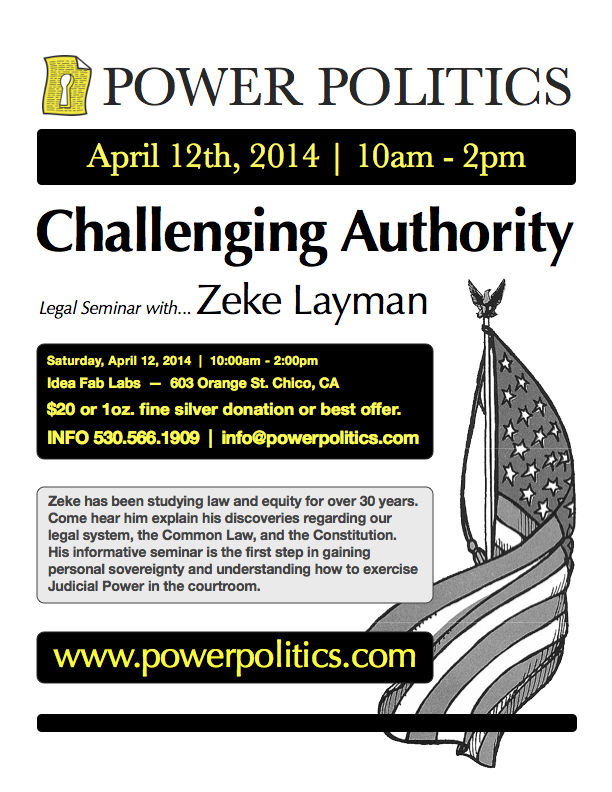There is a lot of talk about “trusts”, the birth certificate, “attachments”, “jurisdictions”, and other “legal” arguments or discussions when people are discussing the different ways to fight a traffic ticket.
A lot of these theories come about because people presume, conflate, convolute, and just simply misunderstand the language that is used in the legal community.
Almost every “patriot” argument begins with one or more of the above but it is usually a false presumption that there is some hidden attachment or contract that is in effect. I do not want to delve into these theories or even determine if the are valid or not. I want to start with the premiss that there are NO hidden issues or contracts and that all we have before us is a “ticket,” which loosely translated means a “complaint”.
All the marbles are on the table, so to speak, and the law allows us to determine, based upon the face of the complaint, whether we wish to “demurrer” or “plea”. The law further provides that the demurer is the method of challenging the authority of the court to hear the case, based upon one or more of five separate grounds.
If one fails to interpose a demurrer, then any challenge to the face of the complaint will only be allowed if that challenge shows that the court lacks jurisdiction of the case or that the complaint fails to allege facts sufficient to constitute a public offense. Those challenges can be raised at any time, but only by the proper procedure!
If one goes past the demurrer and pleas, the trial and the evidence will be all that is left to fight the ticket, although there may be procedural hurdles that the court may run into and if they do not meet those, the case may be dismissed.
So it’s demurrer or plea. All challenges to the jurisdiction of the court must be made by demurrer, motion in arrest of judgement or void judgement (these other two motions are in the nature of demurrer). If you try to raise these issues after you have pled, other than by the motion in arrest of judgement or void judgement, the court will not hear your arguments, even if these arguments are 100% true, which they may be.
The court does not hear theories or what ifs and does not answer questions that are not directly related to the process. You must know the elements of your own demurrer and what it is that you are challenging in the complaint.
You can either challenge the complaint or plea.
It should become obvious, to the freedom fighter, that the best move is the demurrer first, because it is the only (nothing is in stone when it comes to the court process, except maybe the notice of appeal, which must be filed within 30 days of the judgement) and most effective way to show that the court lacks jurisdiction because the complaint fails to state a public offense. If you loose that, you can do a mandamus but you will still have the opportunity to enter a plea. If you plea first, you waive your opportunity to demurrer.
When we take this perspective, we need to examine the complaint to find what fact is missing that is necessary in order for the complaint to state a public offense. More than 80% of the “criminal” complaints filed, lack a necessary fact or element to establish a public offense.
Instead of doing research on how we were all hypothecated to the international banks by way of the birth certificate, social security number, licensing contracts, adhesion contracts, presumption, the all capital letter guys, the abbreviation of the state or this state, and the zip codes, let’s look up the following words; demurrer, public offense, elements of a complaint, standing to sue doctrine, and other related terms so that we will be able to show the insufficiency of the complaint and thereby preclude the entire case from going into the court. If they can’t start a case against us they can’t control and revenue us.

